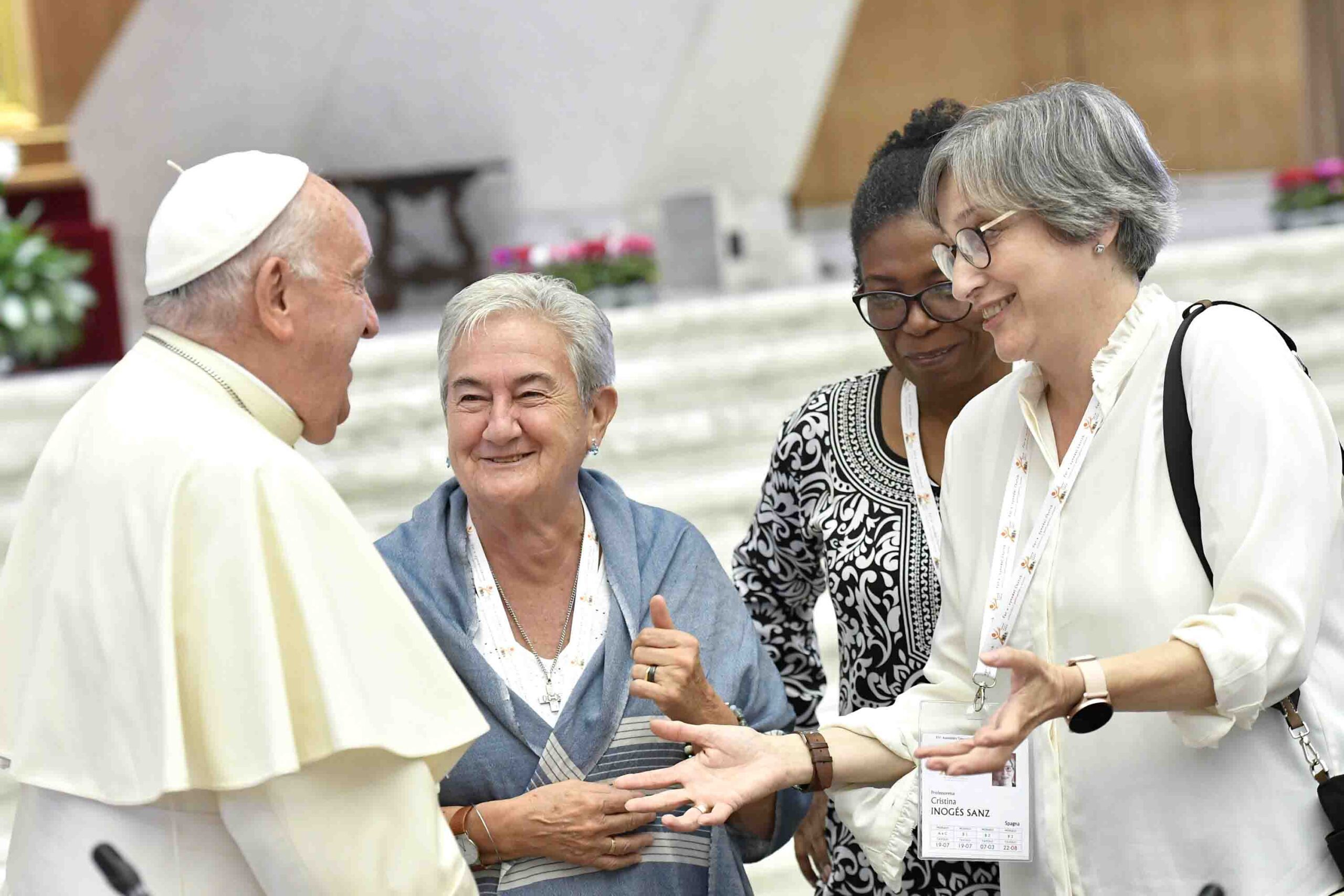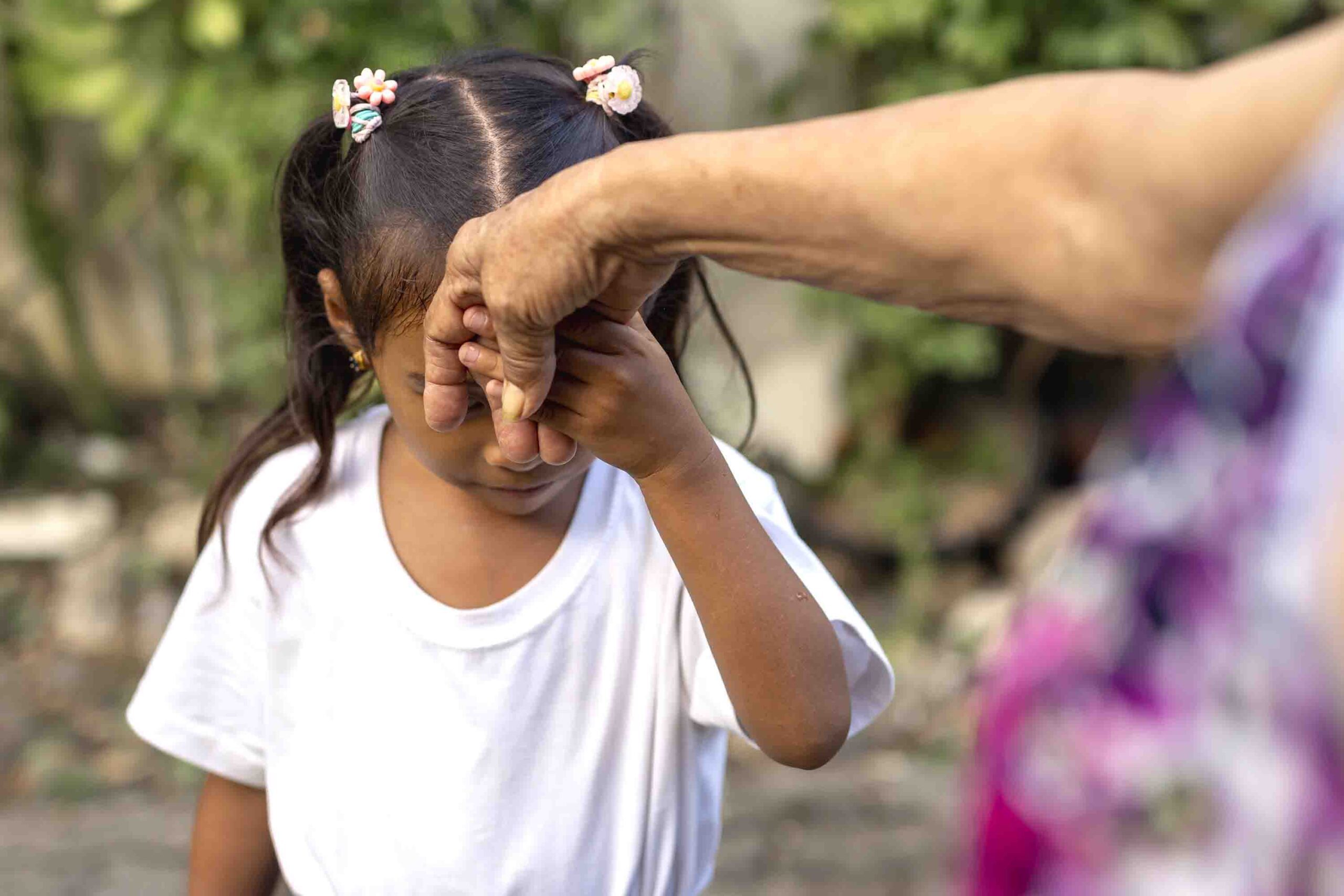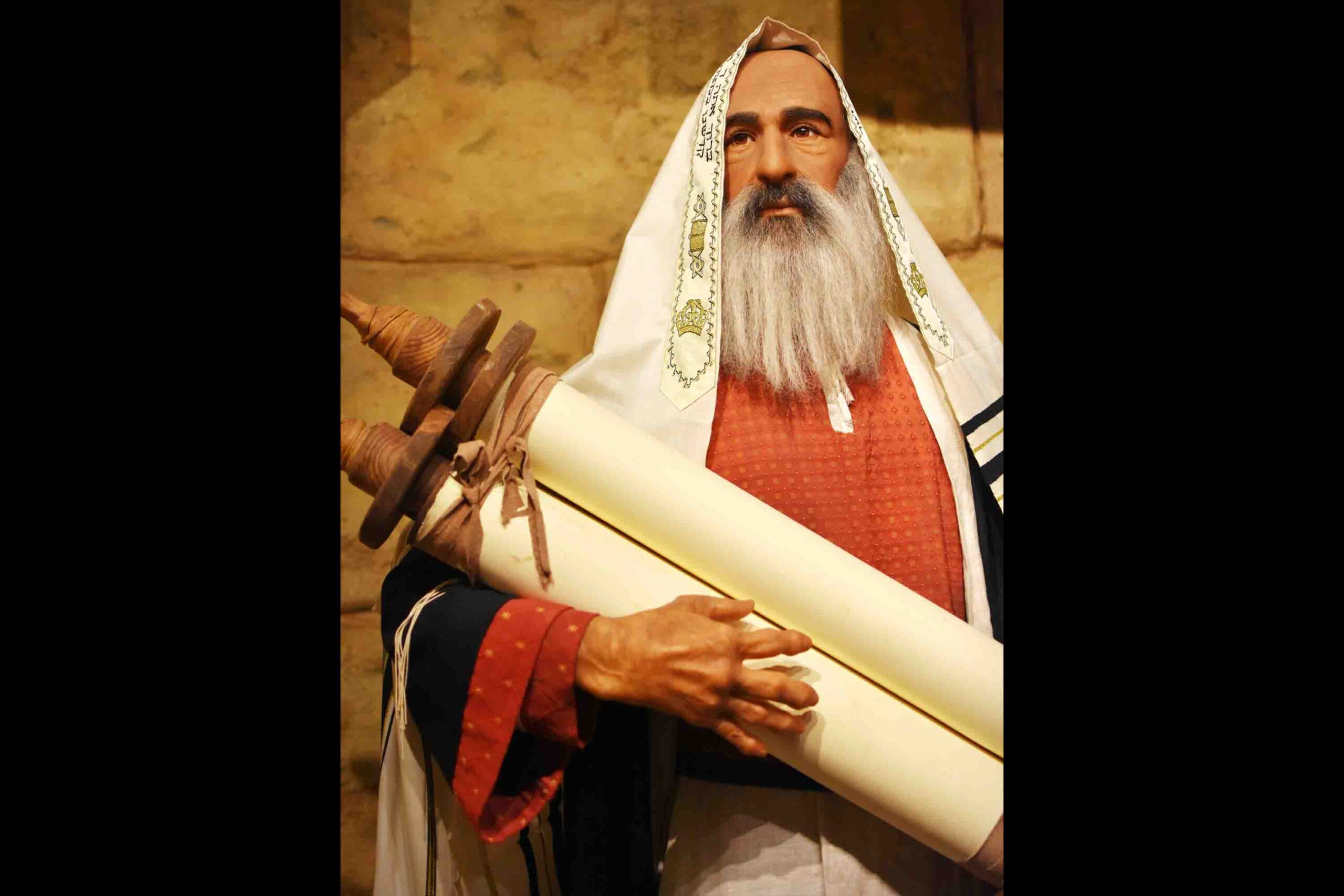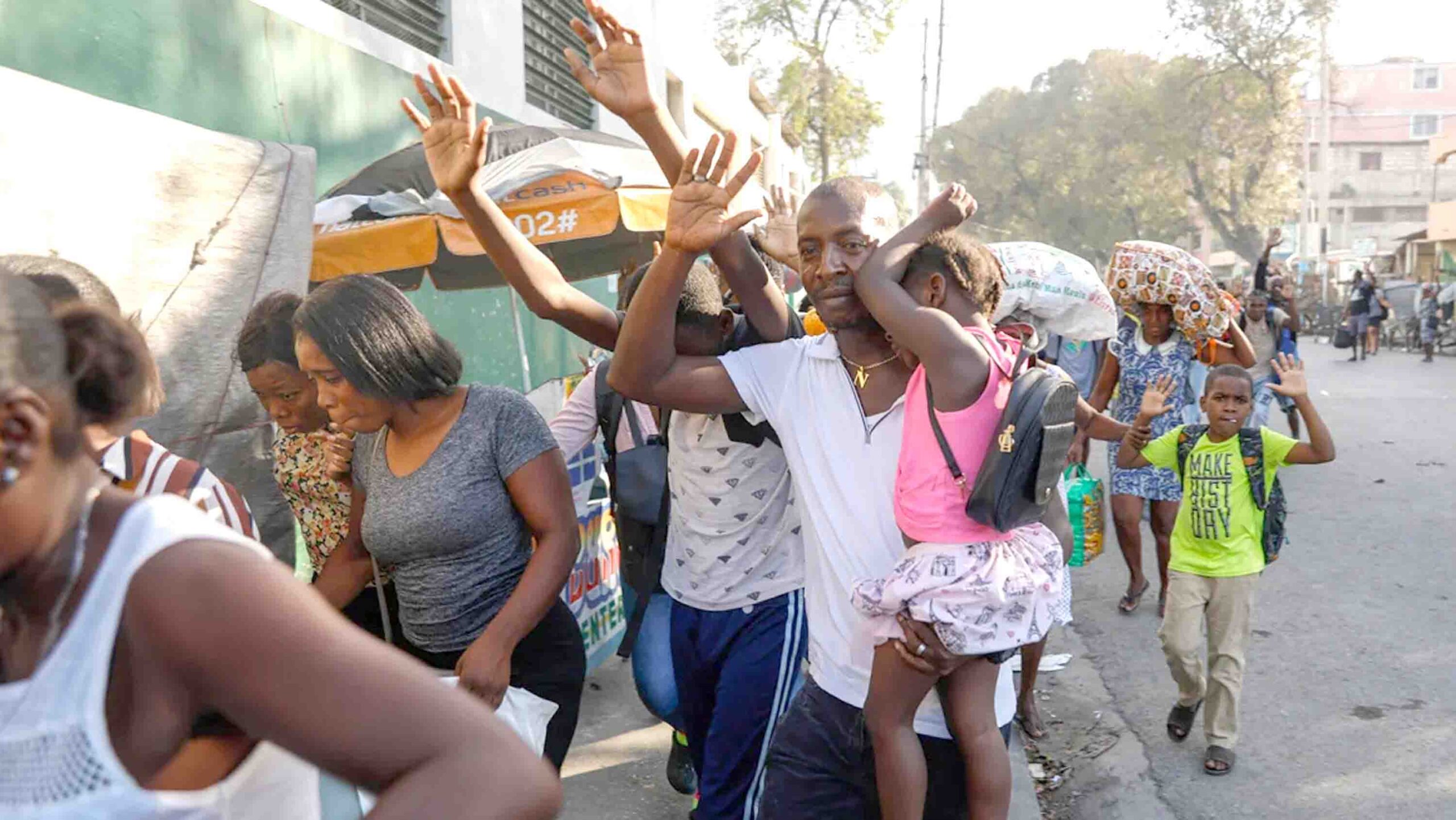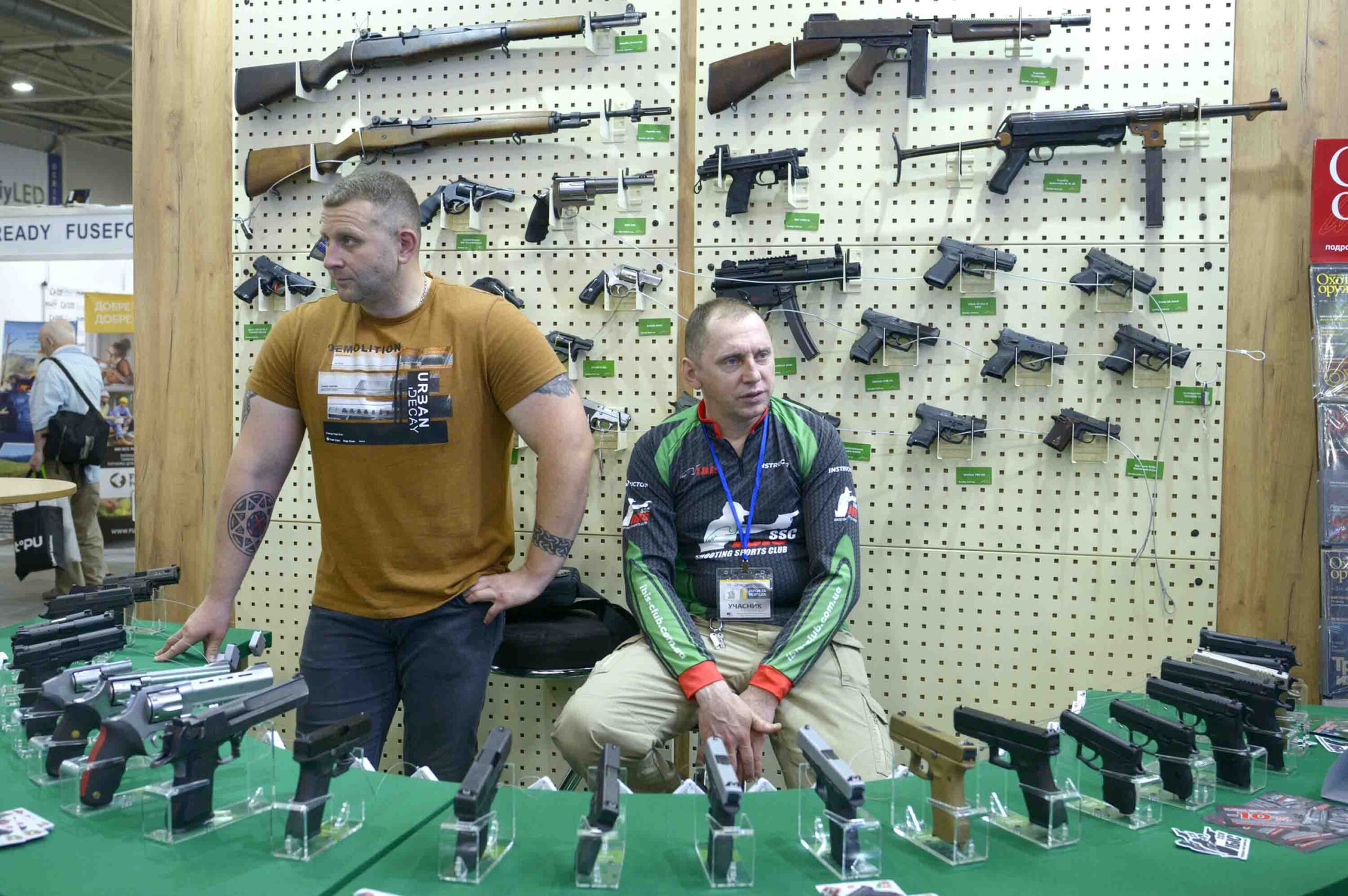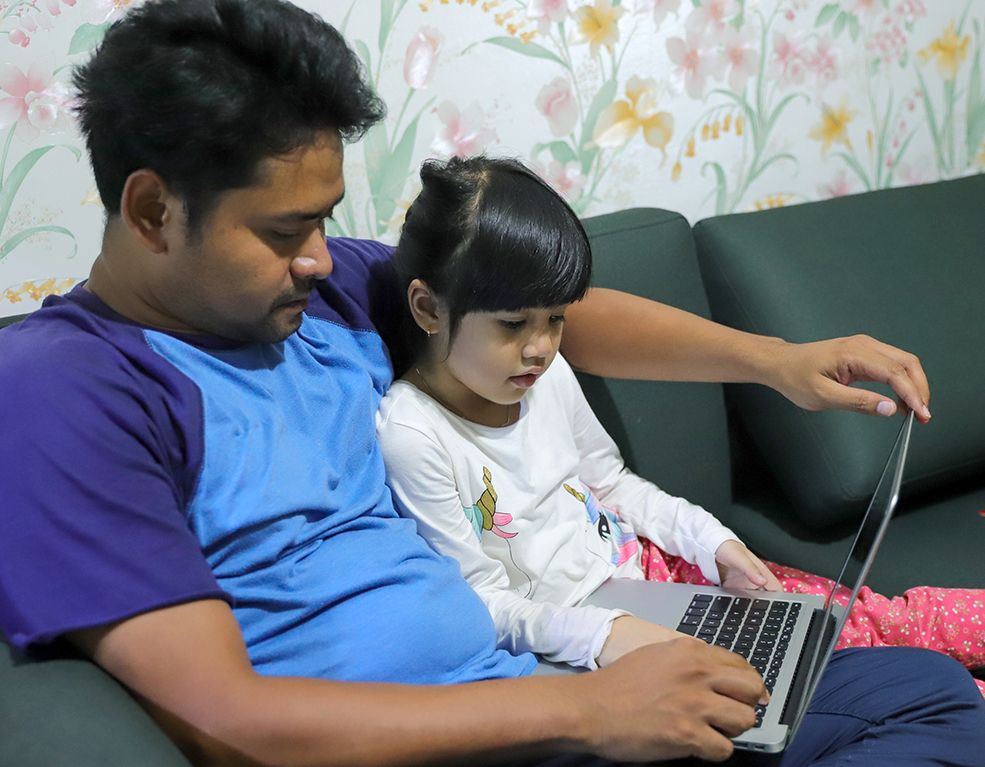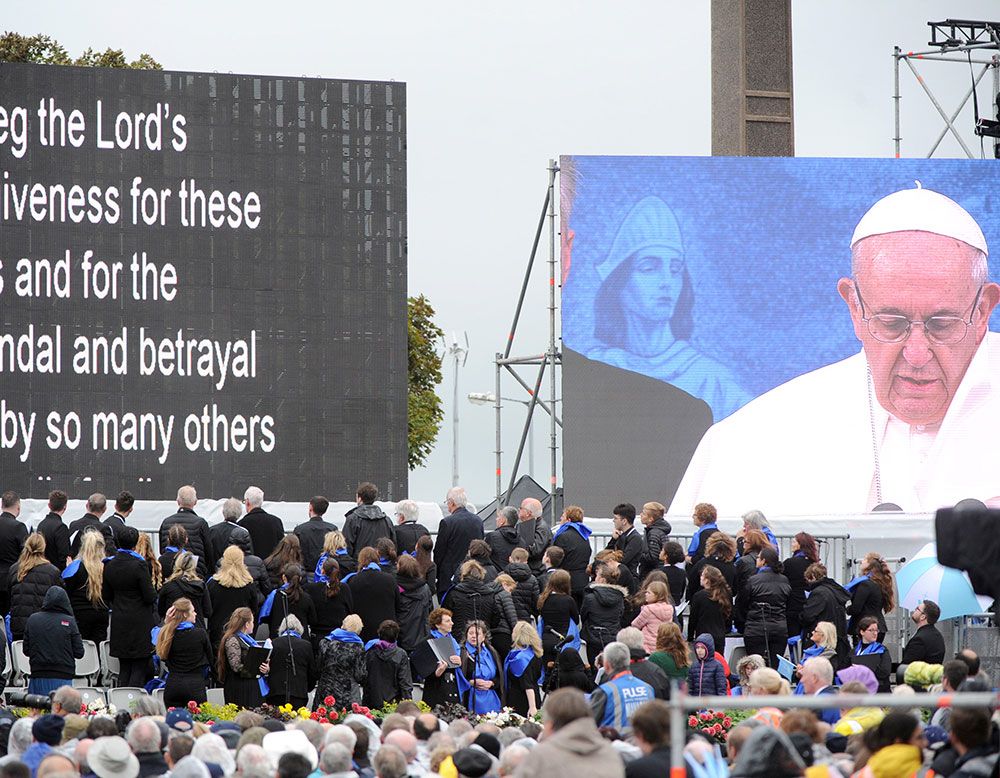The first session of the Synod on Synodality, which was held in Rome on October 4-29 last year, produced a Synthesis Report. Entitled “A Synodal Church in Mission,” the report mentions women 51 times. It summarizes the discussions on each Synod topic in three categories: “Convergences,” “Matters for Consideration,” and “Proposals.” “Convergences” are where the members agreed; “Matters for Consideration” are where they apparently disagreed; and “Proposals” are where more information and discussion are needed.
Two major sections of the Synthesis Report, one on “Women in the Life and Mission of the Church” and another on consecrated life, echoed the worldwide discussion about women in the Church.
Early on, the Synod Report affirms that all men and women have equal dignity and, according to their own states in life and vocations, have a part to play in the mission of the Church, which is to witness to the Gospel.
Specifically, the report states that the Synod members recognize baptismal equality for all persons. The section’s introductory passage presents Catholic teaching in recognition of this fact: “We are created, male and female, in the image and likeness of God. From the beginning, creation manifests unity and difference, bestowing on women and men a shared nature, calling, and destiny, and two distinct experiences of being human. Sacred Scripture testifies to the complementarity and reciprocity of women and men, and to the covenant between them that lies at the heart of God’s design for creation. Jesus considered women His interlocutors: He spoke with them about the Kingdom of God; He welcomed them as disciples, for example, Mary of Bethany. These women, who experienced His power of healing, liberation, and recognition, traveled with Him from Galilee to Jerusalem (Luke 8, 1-3). He entrusted the announcement of the Resurrection on Easter morning to a woman, Mary Magdalene” (Synthesis Report, 9.a).
This very beautiful paragraph, approved by 341 of the 346 members voting on it, underscores the most essential point of the Christian message that we are all made in the image and likeness of God. The Synod meeting itself was an exercise in recognition of this fact. While most voting members were male, and most of them were priests and bishops, there were fifty-four women able to vote for the first time at a Synod.
WOMEN AS WIVES AND MOTHERS
Women–especially mothers–suffer most deeply the dual scourges of poverty and war. It is mothers who suffer these wounds twice over when their children are starving and injured. Mothers experience deep sorrow and fear, like Mary of Nazareth, the mother of Jesus. The report points out: “[Mary] knew the joy of bearing and nurturing and endured pain and suffering. She gave birth in impoverished conditions, became a refugee and lived the sorrow of her Son’s brutal killing, but she also knew the magnificence of his Resurrection and the glory of Pentecost” (Report, 9.c).
The Synod presented concerns about the preparation given to women and men for the Sacrament of Marriage. It suggested establishing a ministry entrusted to married couples, who could accompany young people as they prepare for their life together. Implicit in these suggestions is the commitment to Christian family life, and all it entails.
Looking inside Church structures, the report shows that the Synod members recognized a need for structural renewal, specifically to create a Church where women and men dialogue together, and it notes worldwide requests for the recognition of women’s contributions in all areas of Church life and mission.
WOMEN DEACONS
One important question–a “Matter for Consideration” –presented by the Synod members is how to increase women’s pastoral leadership. While the Synod was not open to discussion or consideration of matters of doctrine, the question of including women in the diaconate was amply discussed. The Synod Report clearly asks: “how can the Church include more women in existing roles and ministries?” (Report, 9.i).
The question of restoring women to the ordained diaconate in the Latin Church has been simmering for more than fifty years. When the International Theological Commission (a body of the Dicastery for the Doctrine of the Faith, or DDF) published Inter Insigniores, its “Declaration of the Question of Admission of Women to the Ministerial Priesthood” (15 October 1976), it pointed out that the admission of women to the diaconate was specifically left aside for further research.
The International Theological Commission continued that research between 1992 and 1997, but no document appeared. A new ITC sub-commission published a document in 2002, which concluded that 1) the women ordained as deaconesses were not “equivalent” to the men ordained as deacons; 2) in the sacrament of Holy Orders the priesthood and episcopate are clearly distinct from the diaconate; and 3) therefore “it pertains to the ministry of discernment which the Lord established in his church to pronounce authoritatively on this question” (From the Diakonia of Christ to the Diakonia of the Apostles, V).
So, where is the question now? Two arguments against restoring women to the ordained diaconate are implicit in the 2002 document: The so-called “iconic argument.” That is, a belief that women cannot image Jesus, the Risen Lord. Second is the “unicity of orders” argument. That is, there is but one sacrament of Holy Orders, and because women cannot be ordained as priests or bishops, neither may they be ordained as deacons.
The Synod Report summarized the discussion: “Different positions have been expressed regarding women’s access to the diaconal ministry. For some, this step would be unacceptable because they consider it a discontinuity with Tradition. For others, however, opening access for women to the diaconate would restore the practice of the Early Church. Others still discern it as an appropriate and necessary response to the signs of the times, faithful to the Tradition, and one that would find an echo in the hearts of many who seek new energy and vitality in the Church. Some express concern that the request speaks of a worrying anthropological confusion, which, if granted, would marry the Church to the spirit of the age” (Report, 9.j).
So, the Synod recommended that research on the question of women deacons should be continued and that the result of the research should be presented to the Synod at the October 2024 meeting.
WOMEN RELIGIOUS
The most recent discussion about women deacons was initiated by women religious. At the 2016 International Union of Superiors General (UISG) meeting, a sister asked Pope Francis why women could not be ordained as deacons, as in the early Church. He responded by saying he would establish a commission to investigate the question. In fact, he established two commissions. The first met between 2016 and 2018, and the second between 2021 and 2022. Neither commission report has been published.
Women religious, along with married and single secular women, would be eligible for diaconal ordination, but the diaconate of women is not to be confused with women’s religious life, which espouses particular charisms in the service of the People of God.
The Synod recognized that religious life has much to teach the Church about Synodality. In its section on consecrated life, the Synod Report notes the “practices of synodal life and discernment that have been tried and tested in communities of consecrated life, maturing over the centuries” and affirms that “we can learn from them wisdom in how to walk the synodal path” (Report, 10.b).
The Synod also recognized “Cases of abuse of various kinds experienced by those in religious life and members of lay associations, especially of women, signal a problem in the exercise of authority and demand decisive and appropriate interventions” (Report, 10.d).
The kaleidoscope of charisms the Church enjoys through the various religious institutes, orders, and lay associations of men and women, but especially of women, exemplifies varied paths to holiness, and the Synod presented the need to promote and increase collaboration between episcopal conferences and the various conferences of major superiors’ various groupings.
CONCLUSION
The Synod Report notes the problems of “those who do not have the things they need to lead a dignified life…[and] those who suffer violence and abuse, in particular women.” Most importantly, the Synod Report points out that “Poverty is not just of one kind” (Report, 4.c).
The poverty women in general and especially women who serve the Church suffer expands beyond the lack of material things and instances of violence and abuse. The poverty women suffer is a lack of respect for and recognition of their status as equally human and equally able to represent Christ, informally as members of the People of God, and formally as ordained deacons. Such is the basic and underlying problem the entire Church must answer.
Phyllis Zagano, Ph.D. was a member of the 2016-2018 Pontifical Commission for the Study of the Diaconate of Women. She has written widely on women in the Church, and her most recent book is Just Church: Catholic Social Teaching, Synodality, and Women (Paulist Press, 2023). She holds a research appointment at Hofstra University, Hempstead, New York, USA.

